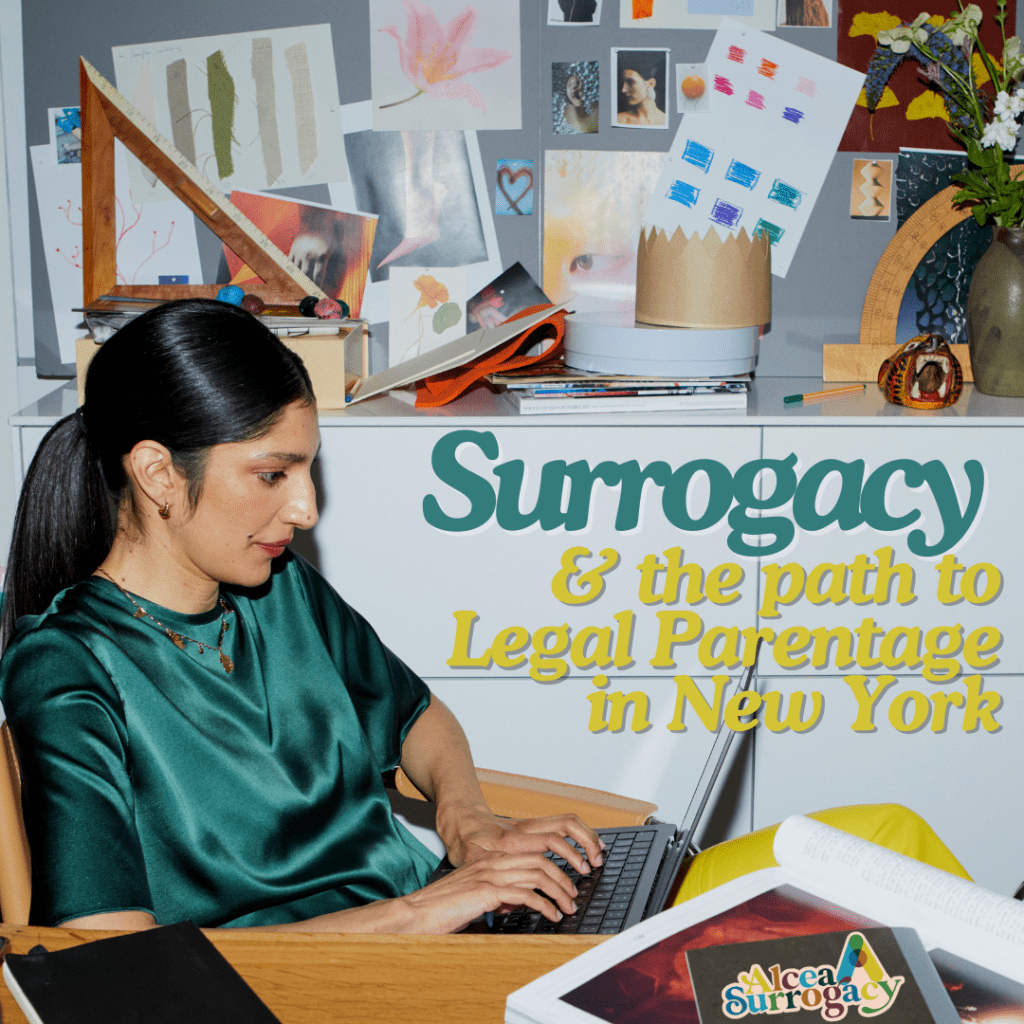
Surrogacy offers hope for those who may otherwise be unable to have a child, and on February 15, 2021, New York joined many other states in the nation that offer compensated gestational surrogacy as a legal option for their residents. While surrogacy includes a legal agreement between parties, it is still “a very human experience” says attorney Richard Vaughn ESQ. of International Fertility Law Group. “The most important thing is to find the right match between surrogate and intended parents. This is the key to a smooth experience.”
There are many milestones during a surrogacy journey including the signed surrogacy agreement, the first heartbeat, delivery of a healthy baby and legal guardianship. It is no secret that the successful establishment of legal parentage can be confusing for intended parents. However, the good news is that the legal process in New York offers various paths to legal parentage, and it all starts before anyone signs an agreement! This blog will help guide intended parents and surrogates through the process of what to expect on the path to legal parentage in New York.
1. Critical Steps for Intended Parents & Surrogates
Attorney and legal expert Richard Vaughn ESQ. reinforces that it is critical to, among other things:
Choose a licensed surrogacy agency and attorney in New York. All parties should have protection and trusted resources to guide them through the surrogacy journey.
Read the New York State’s Gestational Surrogates’ Bill of Rights which all parties should receive with their contract.
Ensure that the surrogacy contract complies with the Child-Parent Security Act (CPSA)
Have guardianship designations which are required by the CPSA. This requires that intended parents choose a guardian (should something happen to them) during the surrogacy journey. This ensures there is someone who can step in and care for the child in the event of unforeseen circumstances.
Work with an attorney licensed in New York/
2. Securing Your Legal Parentage in New York
NY requires a pre-birth and a post-birth order.
The Pre-Birth Order: This document establishes that the surrogacy contract complies with the local law, that the intended parents are the legal parents of the newborn immediately at birth, and that the intended parents shall be named on the birth certificate
Start early! Intended Parents can petition the court for a pre-birth order during the pregnancy. To ensure a pre-birth order is entered prior to birth, your attorney should start the parentage petition early[RV1] .
The pre-birth order will be provided by the attorney to the hospital prior to delivery.
The pre-birth order makes it clear for all parties before the baby is born that the intended parents are the child’s legal parents immediately at birth.
The Post-Birth Order: This document will include many of the details from the pre-birth order but can now include the baby’s name and date of birth. The post-birth order will be filed with the vital records office (refer to the court process below).
If the baby is born early, and the intended parents have not yet received their pre-birth order:
The attorney can petition the court, for an expedited pre-birth order; if the pre-birth order was previously filed, this could be completed within 1-2 days, possibly even while the surrogate is still in the hospital.
In the meantime, the surrogate can sign a healthcare power of attorney [RV2] granting intended parents the authority to care for the baby and allowing the baby to be released into their care.
The Surrogate: It is important to know that with every birth in the State, the New York office of vital records / NY Dept. of Health will record information about the person who physically gave birth to the child, so the surrogate will need to answer questions about the pregnancy. This information will be documented on a form filled out by the hospital registrar’s office and provided to the vital records office.
The Birth Certificate: The attorney of the intended parents will ensure the post-birth order is sent to the vital records office and while the surrogate will be noted as the birthing person on the forms completed by the hospital registrar, only the intended parent(s) will be included on the final birth certificate.
3. The Court Process
In each County, there are 3 different kinds of courts in New York where the petition for parentage can be filed. Processes may differ by county and court, so knowledge of the specific practices, procedures and requirements, which vary by court and by County, will be essential to a smooth parentage filing. Regardless of these local variations, New York law is clear that the intended parents in a surrogacy journey will be the legal parents.
Hearings: Some courts may require a hearing; and hearing requirements may vary by county and judge. Some courts may require an appearance by attorneys only, some require the attorneys and intended parents to appear, and others may waive hearings altogether.
Alcea Surrogacy is proud to be at the forefront of change as one of the first licensed surrogacy agencies in New York. Our experienced team and partners are committed to providing the support, guidance and protection that our clients require on their family building journey. Contact us today to learn more about being a surrogate or starting a journey as an intended parent.
Special thanks to Richard Vaughn Esq. fertility law attorney and founder of International Fertility Law Group for lending his legal expertise for this blog.

